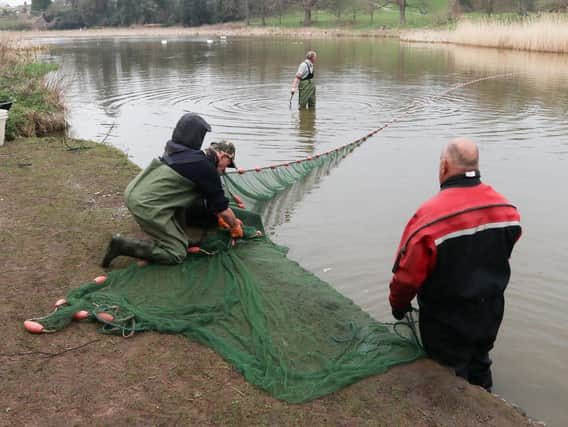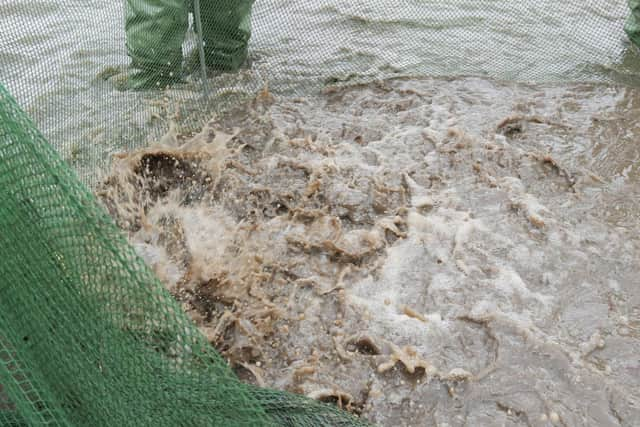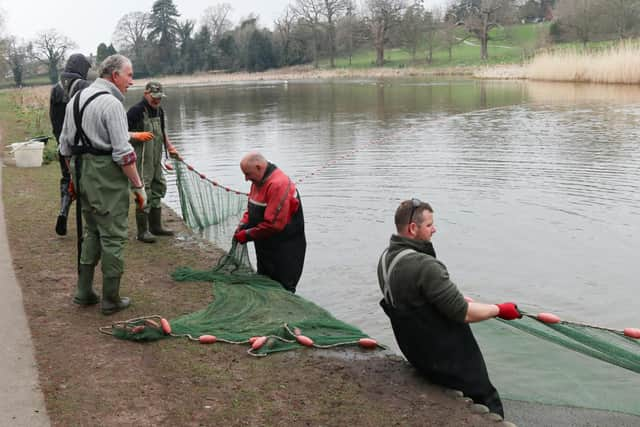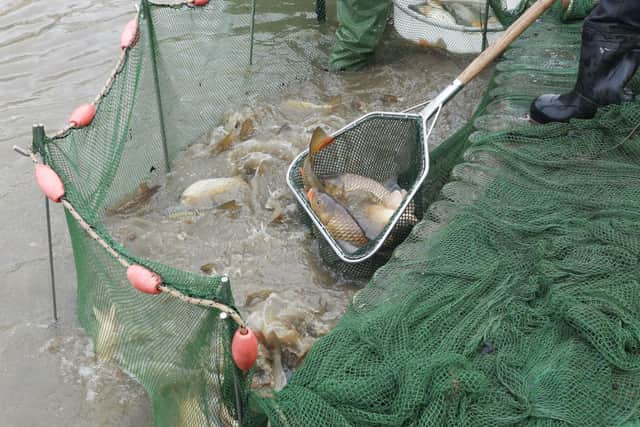Fish removed from lake at Kenilworth's Abbey Fields and relocated to new homes


Fish have been removed from the lake at Abbey Fields in Kenilworth and relocated to new homes.
The fish were removed on March 21, managed by fisheries manager Jon Wall of Jon Wall Fisheries and Anthony Simmons from Leamington Angling Association.
Advertisement
Hide AdAdvertisement
Hide AdMembers from the Friends of Abbey Field also attended the removal.


The Friends say that usually the removal of some of the fish at the lake is carried out every year but this has not been possible for the last few years due to restrictions during the Covid pandemic.
Because the lake is so shallow, the nets were laid from the boat and by people hauling them.
To safely get the nets in and out of the lake debris had to be removed - which included tree branches and a skateboard.
Advertisement
Hide AdAdvertisement
Hide Ad

A spokesperson from the Friends of Abbey Fields said: "Abbey Fields Lake has a variety of fish living in it, mostly common carp and mirror carp and these were what were netted.
"It seems that some other species do live in the lake - a single koi carp - was netted and there are reports of other types of fish living there as well.
"It was even suggested that goldfish get ‘rehoused’ when they become too big or are no longer wanted.
"It is not a good idea to ‘donate’ them to the lake as they will not like the murky waters, and they also might introduce unwanted diseases to the healthy population of existing residents."
Advertisement
Hide AdAdvertisement
Hide Ad

Some of the mirror carp have been taken to Ryton Pools and the rest to Jon Wall’s Fisheries, in oxygenated tanks.
At the fisheries the fish will be health checked, fed and prepared for distribution to restock ponds, lakes and pools in the area and potentially across the UK.
During the fish removal, Anthony Simmons also told the Friends group that the nearby Finham Brook, has a population of brown trout and signal crayfish.
